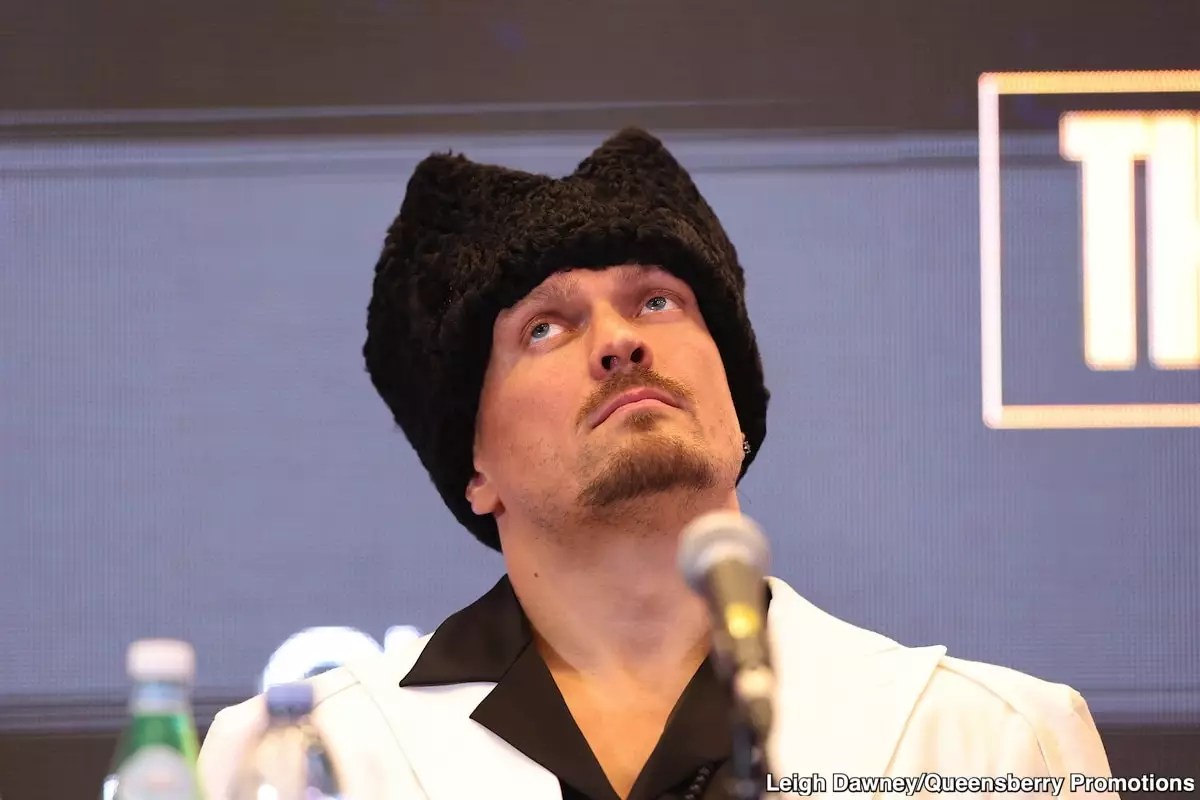In the chaotic landscape of professional boxing, few figures wield as much influence and mischief as Tyson Fury. His recent exuberance about the so-called future of the heavyweight division reveals more about his penchant for sensationalism than a grounded assessment of talent. Fury’s proclamations—branding Moses Itauma as the inevitable destroyer of seasoned champions—are emblematic of a broader tendency in combat sports: the allure of youthful promise, often inflated beyond realistic boundaries. While it’s tempting to get caught up in the excitement, it’s crucial to dissect the narrative and question whether Fury’s enthusiasm is fueled by genuine insight or simply the thrill of attention-grabbing rhetoric.
Fury’s claims aren’t just bold—they are reckless. Declaring that a 20-year-old can “wreck” established giants blinds us to the reality that boxing’s true art lies in experience, tactical nuance, and mental resilience. While the potential of Itauma is undeniable, elevating him prematurely as the next face of the division overlooks the intricate path fighters must navigate, especially against seasoned warriors like Oleksandr Usyk. Such proclamations serve more as hype than as a sober analysis of where these fighters truly stand.
The Danger of Age-Based Narratives
Fury’s repeated emphasis on age as the dividing line between relevance and obsolescence reveals a flawed understanding of what makes a champion. His comment that “boxing is a young man’s game,” followed by a reminder of his own age, appears as a justification for dismissing older fighters. But boxing history is riddled with exceptions—veterans who defy the natural decline associated with age by sharpening their minds and honing their skills. Floyd Mayweather, Wladimir Klitschko, and even George Foreman exemplify how age isn’t merely a barrier but a variable that can be navigated with wisdom and disciplined preparation.
Fury’s fixation on youth might be a convenient way to promote his narrative, but it disregards the fact that fighters like Usyk—who is approaching his mid-thirties—often peak precisely because of their experience. Dismissing aging champions as “spent forces” diminishes the complexity of boxing and underestimates the resilience and evolution of fighters who refuse to fade quietly.
Why Oleksandr Usyk Remains a Step Ahead
For all the hype about rising prospects, Oleksandr Usyk exemplifies what it truly means to be a top-tier boxer. His strategic brilliance, footwork, and fighting IQ elevate him far beyond mere physical attributes. While Fury dismisses Usyk as past his prime or a merely “tactical” figure, such caricatures ignore the reality that Usyk’s success stems from a well-rounded, intelligent approach that destabilizes larger opponents.
It’s worth noting that Usyk didn’t inherit his titles through luck; he earned them through calculated dismantling of opponents across different weight classes. He is a proven champion who consistently demonstrates adaptability and resilience—traits that can’t be measured solely by age or hype. Comparing him to faded, over-the-hill fighters like Ortiz or Joshua is inaccurate; Usyk remains a master technician capable of mauling anyone who underestimates him.
The Illusion of an Imminent Spectacular Transition
Fury’s optimism about Itauma’s potential, though exciting, feels more like a marketing stunt than a genuine prediction. History has shown that so-called “future stars” often face harsh realities when they step into the ring with established champions. Jared Anderson’s recent setback is a stark reminder that hype doesn’t translate into victory, and the phrase “the future of boxing” can be more of a curse than a blessing.
Itauma’s impressive qualities are evident, but rushing to crown him as the division’s dominant force ignores the brutal reality of professional boxing—the need for patience, experience, and mental toughness. Fury’s tendency to throw around future titles as if they are guaranteed can create dangerous illusions for young fighters. Instead of elevating their status prematurely, the focus should be on their development and understanding that greatness requires more than just raw talent.
Fury’s Hype as a Double-Edged Sword
Fury’s rallying cry about the “end of old men” in the division can serve as motivation. However, when it’s wielded as a sword of dismissiveness toward seasoned champions, it risks oversimplifying the process of legacy-building in boxing. His dismissive attitude might generate headlines, but it undermines the respect necessary for a healthy competitive environment. Great fighters—regardless of age—are enduring because they adapt, learn, and fight with purpose.
As much as the boxing world craves new blood and fresh rivals, any credible assessment must respect established champions like Usyk. They’ve defied expectations and shown that experience and tactical mastery can stand tall against youthful exuberance. Fury’s overconfidence might fuel public interest temporarily, but it ultimately clouds the nuanced reality that making lasting greatness in boxing involves far more than a few flashy wins early in a fighter’s career.


Leave a Reply